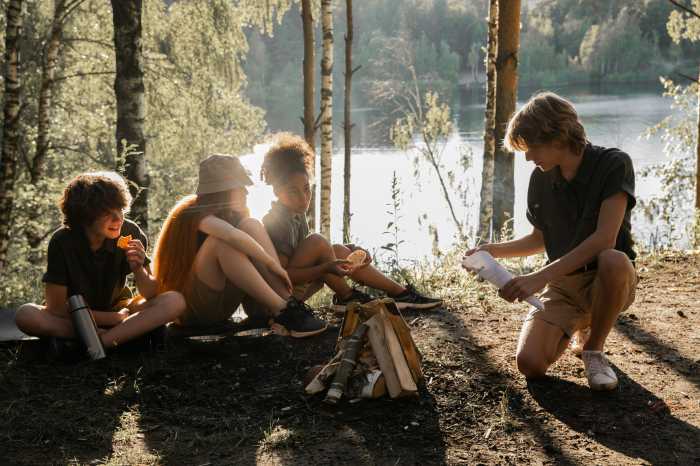Going away to camp is an invaluable opportunity for all kids. The camp experience can provide your child a chance to meet other kids from diverse backgrounds and opportunities to learn about teamwork. It also can be an environment for independence and many fun-filled memories. So how can you prepare your child for fun and success at camp?
Prepare Your Child
Discuss with your child what type of camp she would like to attend. Your child might be interested in going to the same camp you went to as a child. “Participation in the camp selection process helps them feel involved and take ownership,” says Jill Tipograph, author of Everything Summer® Guide and Planner and CEO/Founder of Everything Summer, LLC.
After the camp is selected, express confidence and enthusiasm about the new experience that she will have away from home. Ideally, you and your child can visit the camp, check out the facilities and talk with the camp director. If that is not possible, the camp should have pictures of the accommodations in brochures or on the Internet. You can talk about the different activities your child will be able to try.
What About Fears?
Some children can say goodbye to parents at the bus stop and never look back. However, most kids express some concerns about going to camp. “Teach kids that homesickness and separation fears are normal; that lots of kids experience these feelings,” says psychologist Frank Sileo, Ph.D., author of Bug Bites and Campfires: A Story for Kids About Homesickness (Health Press NA Inc., 2009). If you think your child may have difficulty going to camp, you can organize practice times away at a friend’s house or relative’s home. You can then discuss with your child after he comes home, what might help him not feel homesick. Sileo suggests discussing different coping strategies with your child. Would it help him if he had a picture of the family to look at if he was feeling lonely? Would a certain stuffed animal give him a sense of home and comfort?
If you, as the parent, are feeling anxious about your child going away to camp, talking to another parent with an older child is often helpful because she can relate to how you feel and yet, assure you that your thoughts are normal. “If a parent is anxious, it’s important to keep your anxiety or ambivalence away from your child,” says Sileo.
Have your child talk to family members such as grandparents that went to camp as a child. Grandparents can tell great stories about their own experiences.
What to Pack?
Camps provide a complete list of items for your child to bring. Depending on the age of your child, have her look at the list and discuss the different items. Purchasing some specific items early for camp such as a flashlight or a special toothbrush may add to the excitement of camp. Extra socks and underwear are always helpful for any camper.
Prescription Meds
Tipograph encourages parents who are concerned about telling the camp about the medicines that their child is taking to be completely honest with the camp. It sends the wrong message to their child and could impact the success of a child at camp. “A parent should feel confident that a camp has experience working with kids who have to take medicine on a regular basis,” says Tipograph.
What Not to Bring
Keep to the list and follow the instructions on what not to bring. Electronics and valuables are normally prohibited at camp. Parents may be tempted to pack something on the “not allowed” list, but it sends the wrong message to your child. In addition, if another child sees that your child brought a prohibited item, it could cause inequality among the other campers.
Send a Letter!
Most camps encourage snail mail and some camps are set up to have emails sent to campers. Send grandparents and close friends the email link so they can send your child an email. Letters and packages from home can be an encouragement to your child. Remember to include in the package extra treats to be shared among all of his cabin mates. “Send a letter to your child at camp before they arrive. It will be a nice gift on their first day of camp,” suggests Sileo.
Benefits of Camp
“Camp allows for unconditional acceptance in a strong community, exposure to more outdoors and nature, and an opportunity to gain more independence and self-esteem. It provides physical and psychological maturity, wonderful friendships, tolerance, teamwork and more,” explains Tipograph. Your child’s camp experience will be treasured for years to come.
Jan Udlock is a freelance writer, mom of five and has wonderful memories of going to camp where her grandmother was the crafts director.

















